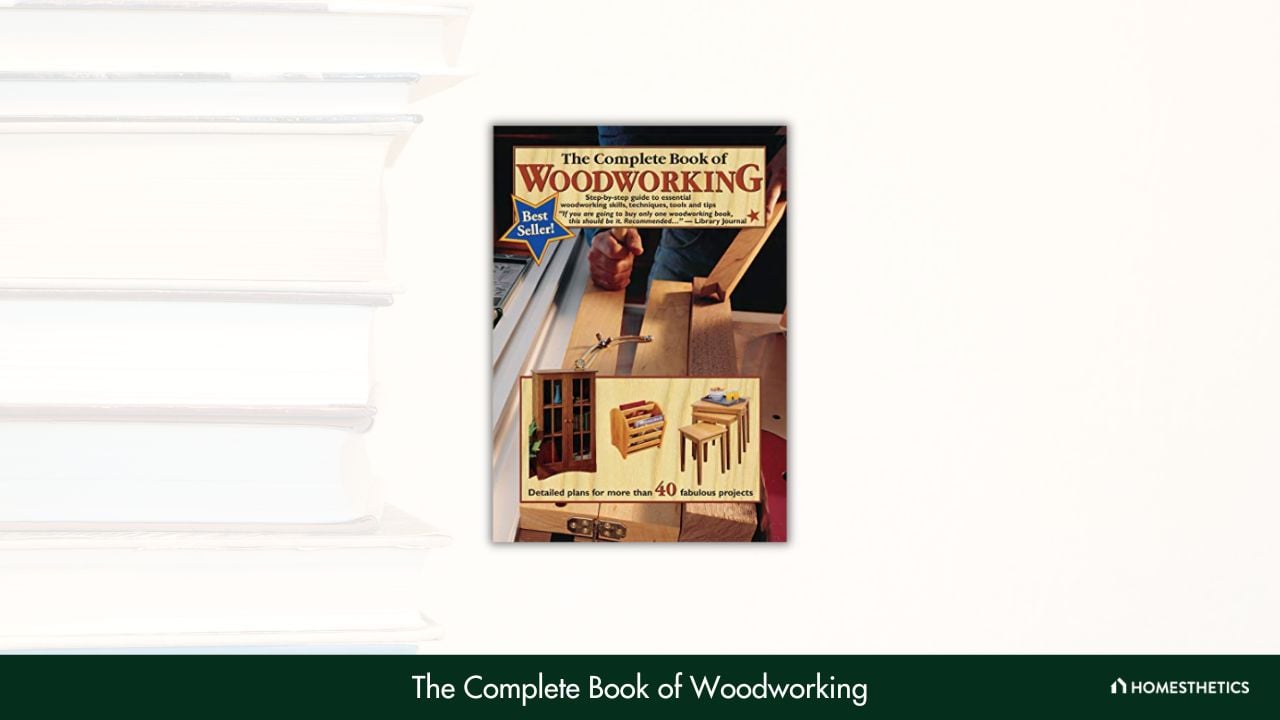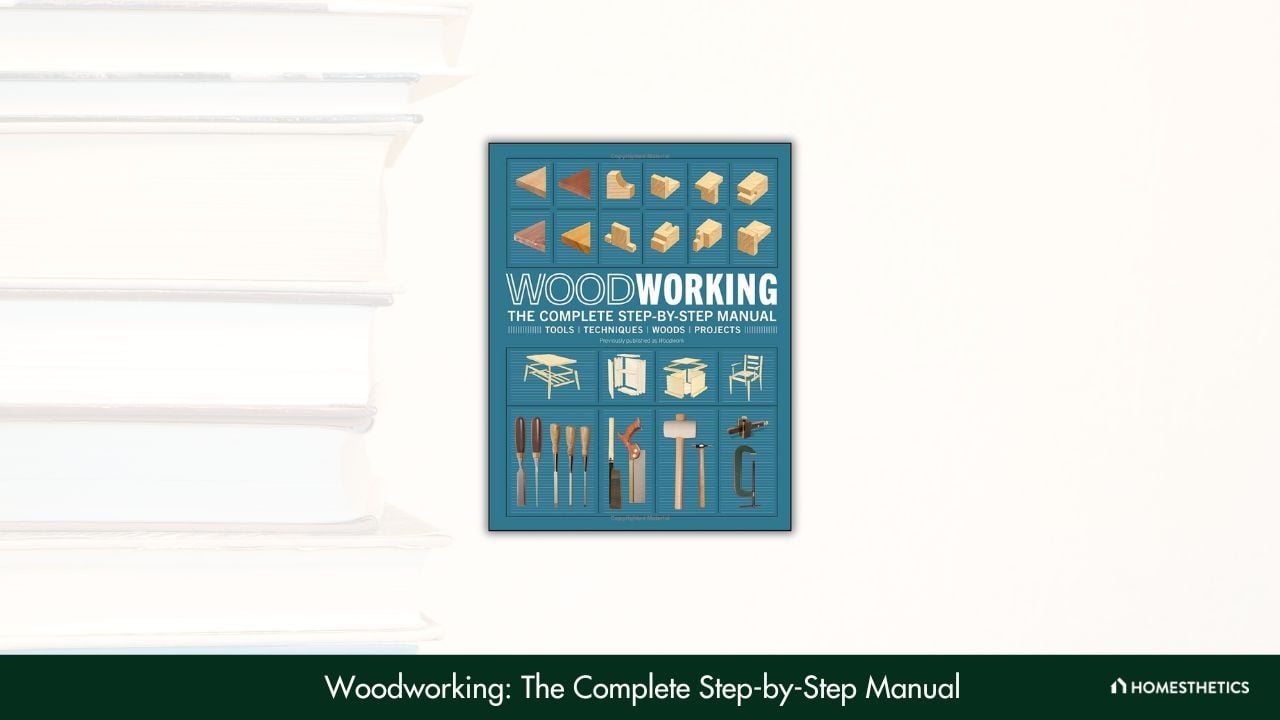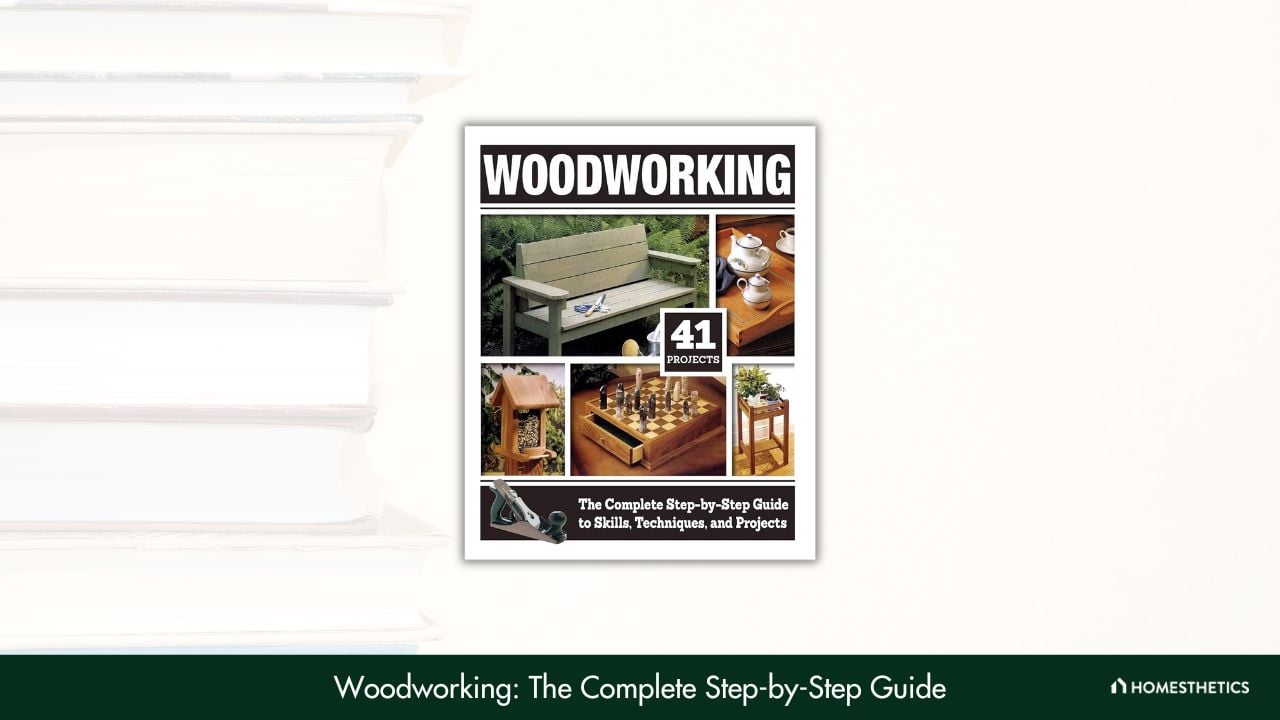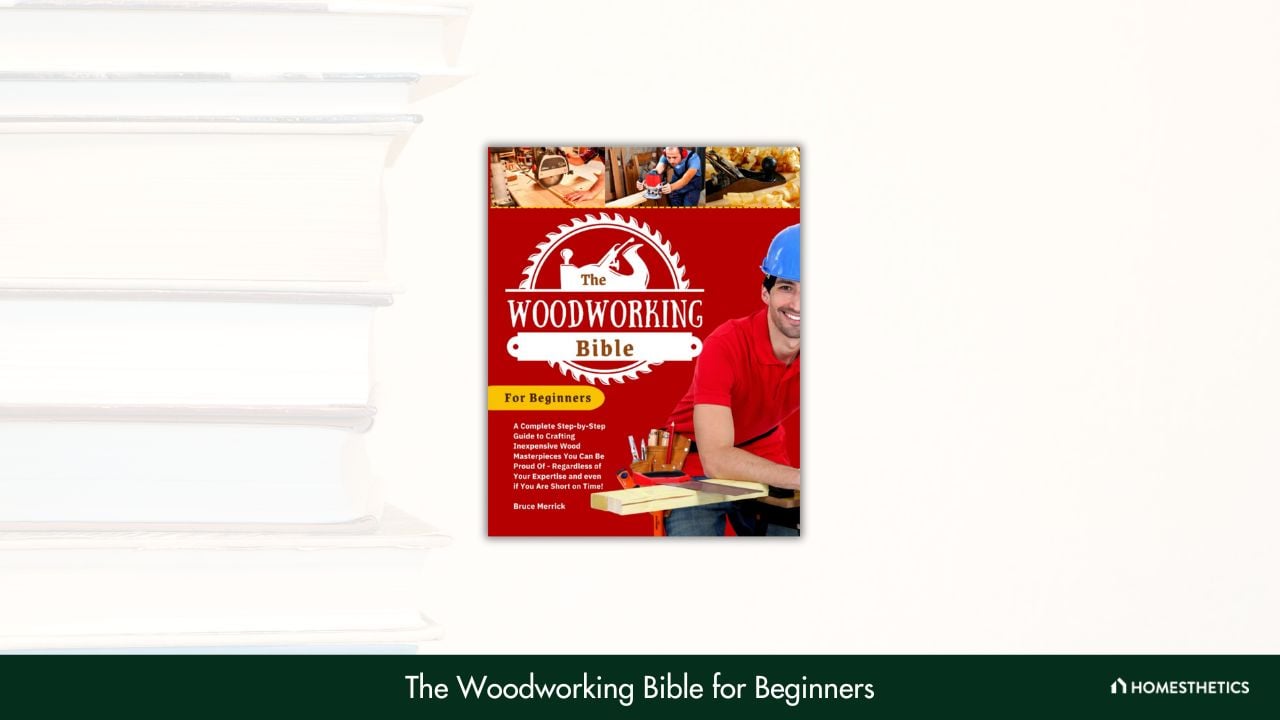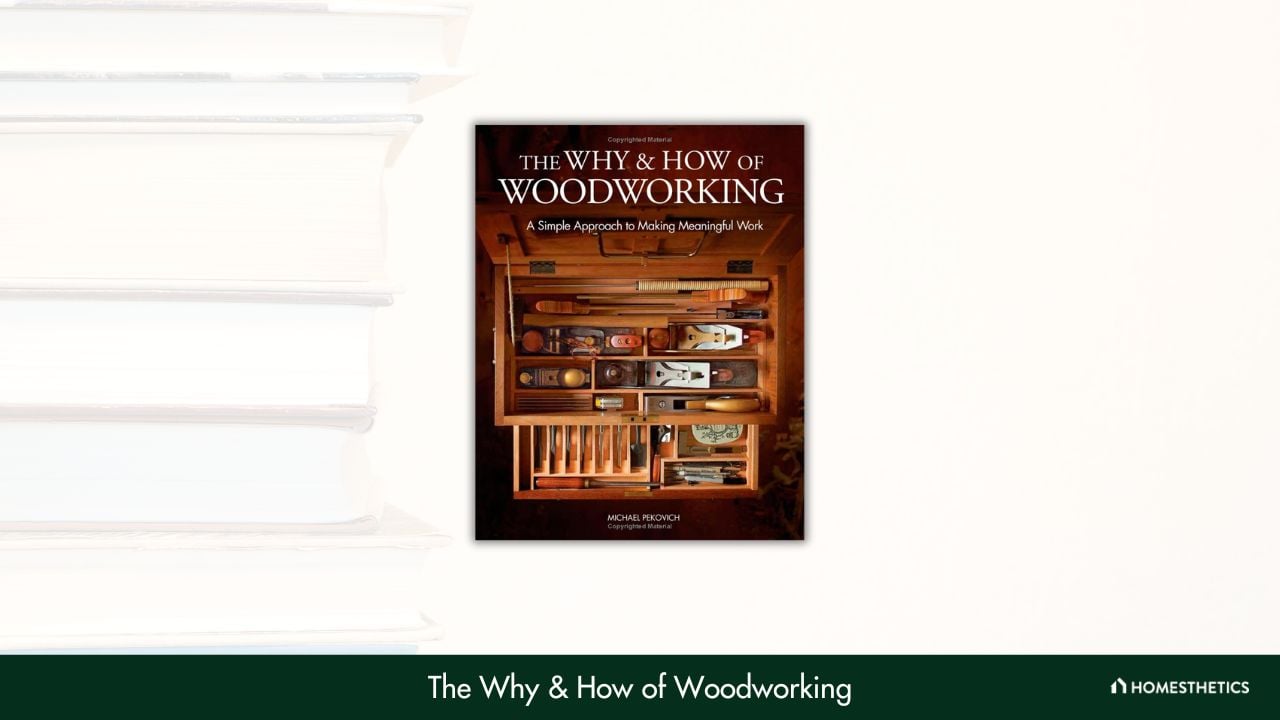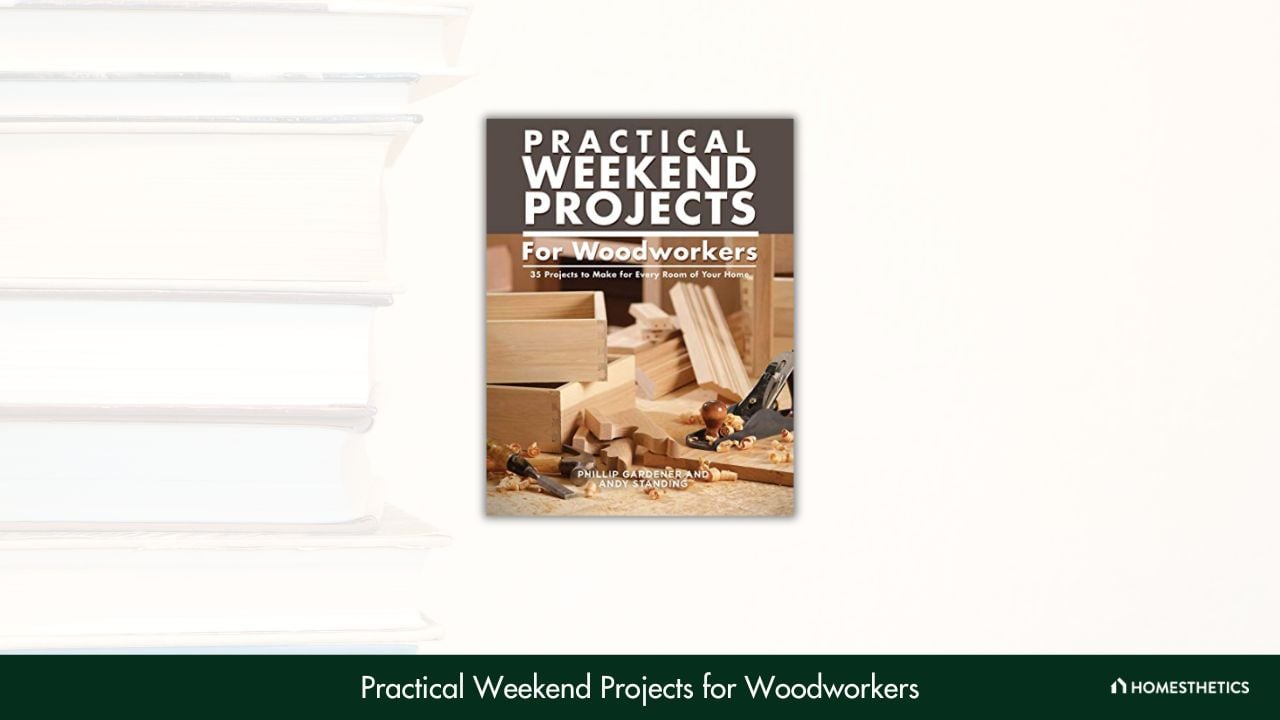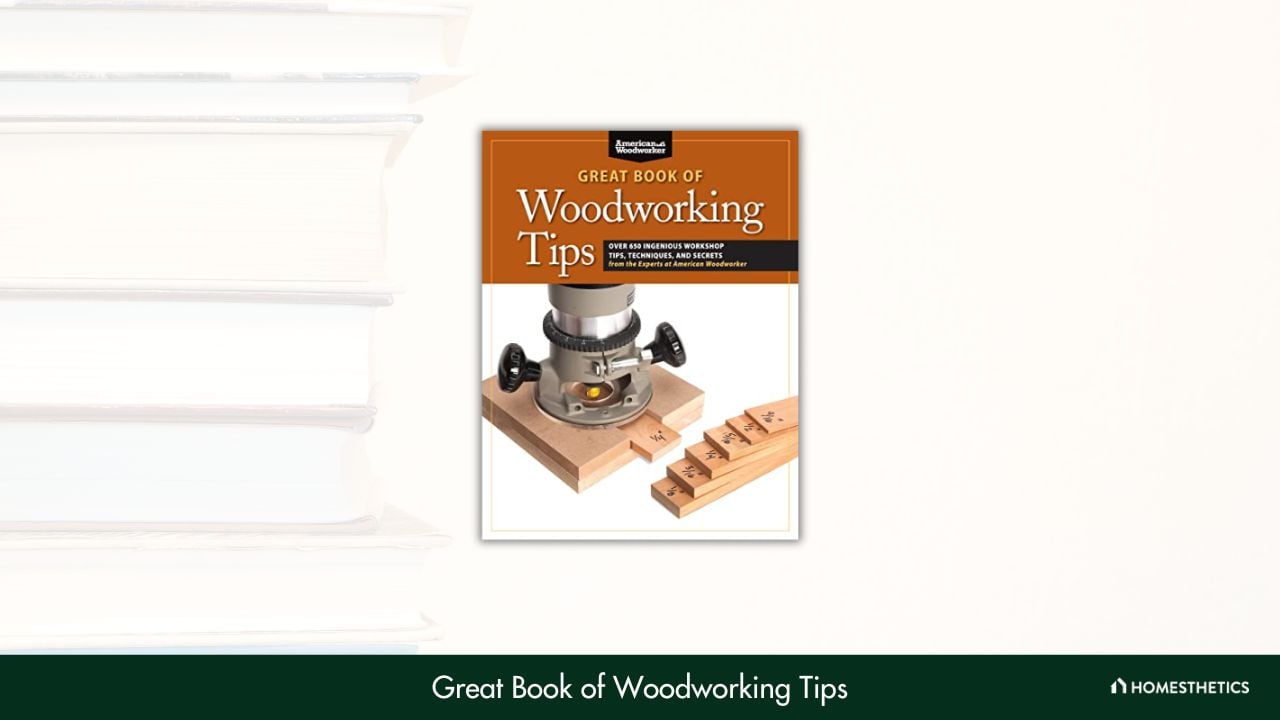The best woodworking books serve as enduring references that blend functional design, material science, and hands-on technique—offering structured guidance to hobbyists, craftspeople, and professionals invested in the precision and poetry of working with wood. These texts are not just project catalogs; they reflect the continuity of an ancient craft through modern methodologies, addressing essential topics such as hand and power tool mastery, species-specific material behavior, joinery geometry, and workshop ergonomics. Giclée-like in their visual clarity, comprehensive volumes such as The Complete Book of Woodworking deliver over 1,200 full-color instructional images, while the Step-by-Step Manual by DK offers tactile learning through detailed sequencing and accessible tool breakdowns. A key appeal of woodworking lies in its repeatable structure and therapeutic rhythm—qualities supported by research from the Journal of Positive Psychology, which links hands-on creative tasks with measurable improvements in well-being and cognitive function. As Michael Pekovich writes in The Why & How of Woodworking, “It's not just about making things, it's about making meaning.” Whether your goal is to build heirloom-quality furniture or to simply understand the grain direction of quartersawn oak, the books listed here offer a curated balance of visual instruction, creative philosophy, and time-tested utility. Each selection supports deeper engagement with woodworking’s architectural roots and aesthetic potential—whether you're crafting dovetailed drawers or refining a Scandinavian-style bookshelf.
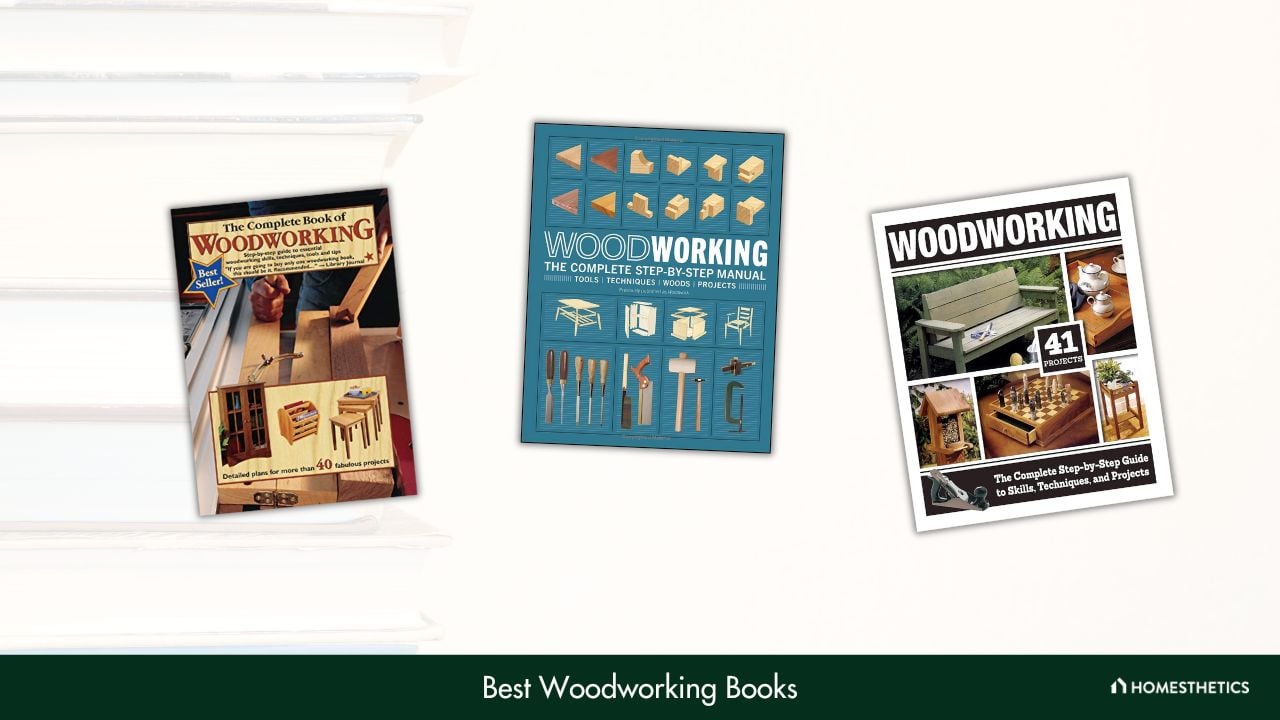
Discover the ultimate woodworking companions for home projects with this curated list of top-rated books:
- The Complete Book of Woodworking: "The Complete Book of Woodworking" by Tom Carpenter and Mark Johanson, including its availability in Kindle and print, the inclusion of over 1,200 photos, detailed instructions, and its suitability for both novice and expert woodworkers.
- Woodworking - The Complete Step-by-Step Manual: "Woodworking - The Complete Step-by-Step Manual" by DK is a 400-page guide praised for its detailed exploration of tools. It encompasses 25 DIY projects with step-by-step instructions, making it an essential resource for both beginners and experienced crafters.
- Woodworking - The Complete Step-by-Step Guide to Skills, Techniques, and Projects: "Woodworking - The Complete Step-by-Step Guide" by Tom Carpenter is a comprehensive 448-page, two-in-one guide that combines skill-building and woodworking projects. It features 41 creative projects and provides practical insights into setting up a woodworking shop.
- The Woodworking Bible for Beginners: "The Woodworking Bible for Beginners" by Bruce Merrick is a budget-friendly guide that presents quick projects with 3D illustrations and blueprints. It includes a bonus link for extra content, making it an ideal choice for beginners seeking efficient project creation.
- The Why & How of Woodworking - A Simple Approach to Making Meaningful Work: "The Why & How of Woodworking" by Michael Pekovich is a 224-page hardcover that emphasizes the simplicity and meaningfulness of woodworking. It offers a theoretical exploration suitable for both beginners and experienced woodworkers.
- Woodworking Basics - Mastering the Essentials of Craftsmanship: "Woodworking Basics - Mastering the Essentials of Craftsmanship" by Phillip Gardner and Andy Standing is a guide suitable for both beginners and veterans. It presents 35 quick and easy projects covering softwood, hardwood, and man-made boards using simple hand and power tools.
- Great Book of Woodworking Tips: "The Great Book of Woodworking Tips" by Randy Johnson, available on Kindle, is a reference book spanning 336 pages. It compiles over 650 solutions to common woodworking problems from American Woodworker magazine, providing practical advice for woodworking success.
1. The Complete Book of Woodworking - Detailed starter guide for a novice woodworker
What We Like
- Availability in Kindle
- Helpful illustrations with detailed instructions
- Expert advice on safety, wood finishing, making a jig, etc.
- More than 40 useful projects, including indoor and outdoor furnishings
- Suitable for beginners and experts
What We Don't Like
- Some users have complained that the projects are boring and outdated
Available on Kindle as well as in physical bookstores, The Complete Book of Woodworking by Tom Carpenter is the ultimate guide for advanced and novice woodworkers. No wonder almost 80% of the 1,992 Amazon (company) users have rated this book a full 5 out of 5 stars.
Since I wanted to try my hand at woodworking, I thought it would be a good idea to check out this comprehensive guide on woodworking tips, skills, and tools. Right off the bat, I was impressed with the step-by-step instructions and colorful diagrams throughout the 480 pages of the book. Overall, this book features more than 1,200 photographs, which makes it a must-have for a novice woodworker like me.
I also like how the woodworking projects in this book include chairs, picture frames, tables, etc. - basic things you’ll use. Not to forget, each section is filled with practical advice from advanced woodworkers. So, you will not only learn the basic information but also become well-equipped to care for and maintain your creations.
2. Woodworking: The Complete Step-by-Step Manual - Best for learning essential woodworking techniques
What We Like
- Detailed description of old and new tools in the woodworking world
- 25 DIY woodworking projects with step-by-step instructions
- Available on Kindle
- Easy-to-follow diagram
- Sturdy binding and good quality paper, and print
What We Don't Like
- Does not cover modern electric tools and technology
Another one of my top recommendations is this complete manual of woodworking published by DK. This book contains easy-to-follow steps - from essential joinery methods to advanced woodworking skills, along with helpful diagrams.
Moreover, beginners can introduce themselves to essential tools, like jointers, table saws, drills, etc., required in their woodworking journey. I especially like how the book explains everything from the basics, like finishing wood, creating edge joints, woodturning, etc.
But that doesn’t mean that a master woodworker will not gain anything from this guide. Owing to the directory containing details of different lumber types, experienced crafters will always have something new to learn.
And thanks to the 25 DIY woodworking projects to choose from, rest assured, you will never fall short of things to create. I also appreciate the details of different machines, power, and hand tools, allowing the reader to choose the right tool for their projects.
3. Woodworking: The Complete Step-by-Step Guide to Skills, Techniques, and Projects - Best two-in-one woodworking book
What We Like
- Beginner-friendly instructions
- Over 1,200 easy-to-follow diagrams
- Two books in one
- 41 creative projects, including outdoor and indoor furnishings
What We Don't Like
- Not suitable for advanced woodworkers
Here’s another gem by author Tom Carpenter, which is a skill-building and woodworking project book, making it an excellent two-in-one deal! Similar to the first recommendation, this book covers more than 40 new projects to try out. And to make the process a tad bit easier, you get 1,200 detailed full-color illustrations with instructions and time frames for a comprehensive understanding of each project.
The 448 pages of this extensive woodworking guide include projects like oak cabinetry, garden benches, spice shelves, wine bars, library bookends, etc. Drawing from experience, this book helped me develop my creativity and carpentry skills and put them to use in making useful wooden products.
Moreover, this book discusses ways to set up a woodworking shop, too. So, if you’re planning to take up woodworking as a side hustle, this detailed guide is your best bet.
4. The Woodworking Bible for Beginners - Best guide for a low-budget furniture maker
What We Like
- Quick yet effective woodworking projects
- 3D illustrations and detailed blueprints
- Additional content on visiting the “secret” link
- Covers 12 essential tools required for every project
- Ideal for beginners
What We Don't Like
- Spiral-bound copies not available
Well, woodworking shouldn’t burn a hole in your pocket. If you agree, you would definitely appreciate this complete guide to affordable wooden projects, allowing you to create anything easily, quickly, and hassle-free!
Besides the detailed guide to design techniques and tools, I appreciate the inclusion of 3D drawings and blueprints that make it easy to follow the instructions. In fact, the detailed plans will guide you through everything, one step at a time, so there’s no guesswork.
However, the USP of this product, as opposed to other woodworking books, is the inclusion of a “secret” link on the last page. On visiting the website, you will find three extra bonuses, namely, “Wood Turning Techniques,” “The Ultimate Guide to Wood Finishing,” and “Creative Woodburning Projects for Beginners.” Downloading the bonus content will further equip you to bring life to every piece of wood.
And the fact that you can create most of the projects in one weekend is worth mentioning!
5. The Why & How of Woodworking: A Simple Approach to Making Meaningful Work - Best for learning the importance of woodworking and simplicity
What We Like
- Unique and mindful approach to woodworking
- Includes the basics of woodworking
- Simple projects for beginners
- High-quality hardcover copies
What We Don't Like
- Does not include step-by-step projects
No list of the best woodworking books is complete without mentioning this renowned piece by Michael Pekovich. The writer is a furniture maker, photographer, graphic designer, and teacher, and his life motto is “Simple is better.” And he follows a similar route when it comes to woodworking, too.
So, unlike my previous recommendations, which include complex, fancy projects, this book takes a theoretical approach to woodworking. It is highly regarded for offering a thoughtful exploration of woodworking as a craft and a means of personal expression.
Hence, among the best woodworking books, this one stands out because it not only explains different types of projects but also emphasizes the importance of simplifying and decluttering life. The writer advocates for filling your life with meaningful and useful objects. And what’s better than making such valuable items yourself?
Like most other readers of this woodworking book, I especially like the motivational “voice” in the book. The author uses his years of wisdom to simplify concepts that are hard to grasp otherwise. As such, I think it doubles as a great conversation starter, too, so I never let it budge from my coffee table!
6. Practical Weekend Projects for Woodworkers - Best reference book for woodworking techniques, tools, and wood types
What We Like
- Suitable for beginners and woodworking veterans
- Quick woodworking projects for the “weekend carpenter”
- Includes easy-to-follow instructions and how-to photographs
- Dedicated reference section for woodworking basics, tools, etc.
What We Don't Like
- Some readers have complained about the projects, including mostly furniture-making
If the previous recommendation is too philosophical for you, and you want something that helps you start from scratch, check out this detailed guide to design techniques, tips, and tools. Here, you will find 35 practical projects that are quick and easy to make. Because let’s be honest, in today’s fast-paced lifestyles, we hardly have enough time to sleep, let alone build wooden furniture!
Thankfully, each project in this book can be made using simple hand and power tools. After spending adequate time reading the book, I realized it includes projects with softwood, hardwood, and man-made boards, offering variety to novice and advanced woodworkers. Not to forget, you get step-by-step instructions and diagrams, ensuring you follow every aspect of the project.
One of my favorite projects from this book of woodworking has to be the mailbox. Although we don’t use it very often, it has added a vintage charm to my yard, and sometimes, that’s all that matters!
7. Great Book of Woodworking Tips - Best book for woodworking tips
What We Like
- Available on Kindle
- Contains woodworking tips from American Woodworker magazine
- Features clear workshop photography for better understanding
- Offers 650 ingenious solutions to common woodworking problems
What We Don't Like
- Does not contain “basic” woodworking projects
Lastly, I recommend this book containing valuable woodworking tips and woodworking knowledge from American Woodworker magazine for creative individuals, regardless of their skill levels. Besides guiding you on various types of projects, the author has done an excellent job in curating “shop-tested” advice for woodworking success on any project.
Thanks to the comprehensive guides included in this book, I now know how to sharpen blades and bits, rout edge joints, handle 4x8 sheets, flatten warped wood, and more.
Moreover, this reference book contains over 650 solutions to common woodworking problems, along with workshop photography. So, once you read this gem, you will be equipped with advanced woodshop tips and, perhaps, start your own woodworking business!
What are the best woodworking books with detailed guides, projects, and tips?
Explore a curated list of the finest woodworking books, each offering a unique blend of skills, techniques, and inspiring projects. From comprehensive manuals to practical tips, these books cover essential aspects of woodworking. Discover valuable insights and expert guidance to enhance your woodworking projects.
| Best Woodworking Books | Writer | Publisher | Print Length | Number of Projects | Types |
|---|---|---|---|---|---|
| The Complete Book of Woodworking | Tom Carpenter and Mark Johanson | Landauer | 480 pages | More than 40 | Spiral-bound, paperback, Kindle |
| Woodworking: The Complete Step-by-Step Manual | DK | DK | 400 pages | 25 | Spiral-bound, paperback, Kindle |
| Woodworking: The Complete Step-by-Step Guide to Skills, Techniques, and Projects | Tom Carpenter | Fox Chapel Publishing | 448 pages | 41 | Spiral-bound, paperback, Kindle |
| The Woodworking Bible for Beginners | Bruce Merrick | Independently published | 122 pages | N/A | Paperback, Kindle |
| The Why & How of Woodworking | Michael Pekovich | Taunton Press | 224 pages | N/A | Kindle, hardcover |
| Practical Weekend Projects for Woodworkers | Phillip Gardner and Andy Standing | Design Originals | 224 pages | 35 | Kindle, paperback |
| Great Book of Woodworking Tips | Randy Johnson | Fox Chapel Publishing | 336 pages | N/A | Spiral-bound, paperback, Kindle |
Buyer’s guide - How to choose the best woodworking books
Woodworking books are a viable alternative to an online woodworking or artisan course, allowing you to learn and gain knowledge from them at your own pace.
So, when purchasing woodworking books, whether you’re a beginner or an expert, it's crucial to ensure that the chosen book provides abundant woodworking techniques, tips, and ideas. This way, you can explore the woodworking world and enhance your woodworking skills.
But how to choose the best book of woodworking for your unique requirements and skill level? After giving each book a go, I have come up with important factors that you can consider to make your pick. Check them out below:
-
Your skill level
When looking for beginner-level woodworking books, it's important to ensure that they offer appropriate information that aligns with your skill level. Many woodworking guides claim to cater to various skill levels, but you must find out whether they specifically address the difficulty level you require to enhance your skills. I recommend checking customer reviews to understand how easy or difficult the book is to read and follow.
In my opinion, a good woodworking book should cover a range of topics and techniques, starting from setting up a workshop and introducing essential woodworking tools. It should further include the use of proper tools and discuss the skills that would be beneficial for experienced woodworkers.
However, you must note that certain woodworking books, like “The Why & How of Woodworking: A Simple Approach to Making Meaningful Work,” are not for beginners. It leans more towards the “self-help” genre, reading which you can motivate yourself to employ and enhance the woodworking skills you already have.
-
Content of the book
Adding to the previous point, ensure that a woodworking book covers the specific information and guidance you're seeking. For instance, if you want to create small woodworking projects like birdhouses, picture frames, etc., steer clear of resources intended for larger, more complex projects. You obviously wouldn’t want to end up with a book explaining how to make a dining table when you just need a chopping board!
So, be cautious of titles that delve into advanced technologies, as beginners may find it challenging to comprehend such concepts at this stage.
Aspiring woodworkers should also consider focusing on a particular skill, such as wood joinery, wood carving, router techniques, etc. Making joinery, in particular, is a valuable skill commonly practiced by woodcarvers. On the other hand, a router is an essential power tool for furniture making.
Accordingly, you can opt for suitable woodworking books. I highly recommend “Woodworking: The Complete Step-by-Step Guide to Skills, Techniques, and Projects” by Tom Carpenter for budding woodworkers.
However, Michael Pekovich’s “The Why & How of Woodworking: A Simple Approach to Making Meaningful Work” offers insights beyond practical instructions. It discusses the reasons why one should explore the world of woodworking and become a craftsman, thereby being a suitable pick for a master woodworker.
Just ask yourself these questions while choosing a woodworking book:
- Is there a section introducing hand tools, materials, and equipment along with their respective uses?
- Does the content encompass safety tips, basic workspace setup, cutting lists, and various other categories?
If the answer to both of these questions is positive, don’t delay and grab that book!
-
Inclusion of illustrations
Pictures are important not only for kids but for adults too! While experts may grasp the information conveyed in the pages, many individuals prefer visualizing the project through actual images.
Including clear photographs makes it easier for numerous readers, especially beginners, to understand the steps of a woodworking project. If you found assembling furniture from Ikea or similar stores challenging, imagine attempting to build your own creations in a woodworking shop without any pictorial guidance!
So, always consider this before buying a book on woodworking.
-
Inclusion of projects
Does the book or the woodworking magazine offer project plans that you can undertake? Are these projects accompanied by illustrated instructions? Ask yourself these questions and examine the variety of projects included in the book. Also, determine if the projects align with your interests.
Some books may include sections dedicated to wooden gifts, like toys or organizers. In hindsight, some may describe more complex projects like tables, chairs, wardrobes, etc.
As such, if you do not own large tools or heavy-duty equipment, avoid books focusing on creating advanced craft projects. Such projects often require sophisticated machinery or even necessitate the involvement of multiple individuals.
However, if you are genuinely committed to woodworking, you can consider investing in small and medium-sized machines that can perform the required tasks. On that note, besides the recommended books, you can subscribe to the American Woodworker magazine to stay on trend with new woodworking techniques and tools.
-
Woodworking safety
Safety plays a vital role, and any reputable resource will prioritize outlining the necessary safety precautions, particularly when woodworking at home.
Regardless of whether one is a professional or a beginner, woodworking safety should never be ignored. So, finding the appropriate title or article that provides relevant information on safety measures will greatly contribute to your progress as a woodworker.
-
Price
Although many books can be purchased at a reasonable price (typically under $50), it is still important to determine a budget. It is not worthwhile to spend even $5 on a book that offers no valuable information to enhance your skill levels.
So, when searching for a suitable woodworking book, ensure that its content aligns with your skills. You can usually get an idea of this from the title of the book, or you can check the back cover to get more details about the content inside.
Is woodworking easy enough to be self-taught?
Yes, woodworking can be self-taught, but it is important to use the right tools and follow safety measures. For beginners, gaining basic knowledge through classes or online resources is recommended to ensure proper techniques and safety practices are followed.
What safety precautions must one undertake while working on a woodworking project?
Below are several safety precautions that one must undertake while working on a woodworking project:
- Inspect your equipment and the type of wood before using
- Wear safety gear, like a mask, to avoid inhaling sawdust
- Take off accessories and loose clothing
- Tie your hair
- Check that your working space is safe and your workbench is clutter-free
The right book can make or break your quest to become a master woodworker. So, make sure you check the customer reviews for each of the books mentioned above and choose wisely. I highly recommend Tom Carpenter’s “The Complete Book of Woodworking” for its extensive range of projects. You will even find expert tips and techniques to enhance your carpentry skills. Another great pick is “Woodworking: The Complete Step-by-Step Manual,” as it explains the basic projects and tools a beginner must have to kickstart their woodworking journey.
With that, I come to the end of this comprehensive article. If you’ve read till far, I suggest checking out another one of my latest articles, “Best Benchtop Planer.”

